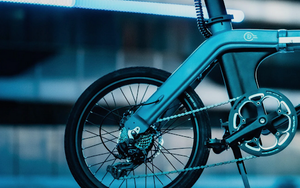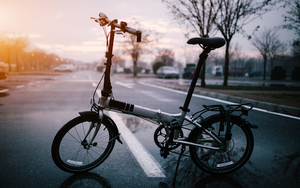Are Electric Scooters Legal In Essex?
Sep 30, 2024
Electric scooters have surged in popularity across the UK, including Essex, prompting discussions about their legal status. This article will explore the current laws surrounding electric scooters in Essex, the ongoing debate about their legality, the impact of these laws on users, and potential future changes.
Understanding Electric Scooter Laws in the UK
The Current Legal Status of Electric Scooters
In the UK, the legal framework for electric scooters is somewhat ambiguous. Currently, privately owned electric scooters are classified as "powered transporters" and are considered illegal for road use unless they comply with specific vehicle regulations. To be legal, they need to be registered with the DVLA, insured, and subject to the same safety standards as other motor vehicles.
However, the only legal electric scooters on public roads are those that are part of government-approved rental schemes. These scooters can be ridden on roads and designated cycle lanes, provided that users adhere to the regulations established by local authorities. The rental schemes have been introduced in various cities across the UK as part of a broader initiative to promote sustainable transport and reduce congestion. These scooters typically have speed limits and are equipped with features that enhance safety, such as lights and bells, making them a more regulated option for urban commuting.
Specific Laws Pertaining to Essex
In Essex, the enforcement of electric scooter laws aligns with national legislation, but local authorities may impose additional rules. Notably, Essex County Council has been proactive in offering trial scooter rental schemes in some urban areas. These trials help understand the viability of electric scooters as part of the urban transport system. The council's efforts reflect a growing recognition of the need for alternative transport solutions, especially in densely populated areas where traffic congestion is a persistent issue. The trials also provide valuable data on user behaviour and safety, which can inform future legislation.
Nevertheless, riding a privately owned electric scooter in public areas, including parks and streets in Essex, is illegal and can result in fines or confiscation. Awareness of these specific laws is crucial for Essex residents who wish to avoid legal repercussions.
Furthermore, the local authorities have been actively engaging with the community to educate them on the rules surrounding electric scooters. This includes public awareness campaigns and informational sessions aimed at clarifying the legal status of electric scooters and promoting safe riding practices. As the popularity of electric scooters continues to rise, understanding these regulations becomes increasingly important for both riders and pedestrians, ensuring a harmonious coexistence on the roads.

The Debate Around Electric Scooter Legality
Arguments for Legalisation
Proponents of legalising electric scooters argue that such legislation could lead to various societal benefits. Primarily, they claim that electric scooters can significantly reduce traffic congestion and emissions in urban areas. With increasing concerns over climate change, many see scooters as a sustainable alternative to conventional transportation. A study by University College London (UCL) researchers has found that in 2021, the adoption of e-scooters in Bristol reduced greenhouse gas emissions by up to 45% compared with the trips taken with transport modes that they replaced.
By integrating electric scooters into the existing transportation ecosystem, cities could encourage a shift away from fossil fuel-dependent vehicles, promoting a cleaner environment and healthier urban living.
Additionally, supporters point out that scooters provide an affordable mode of transport for short trips, helping to alleviate issues related to public transport capacity. Legalisation could facilitate safer riding conditions through better infrastructure, including designated lanes and parking areas.
Furthermore, the convenience of electric scooters can empower individuals who may not have access to a car or who prefer not to rely on public transport, thus enhancing mobility for a broader segment of the population. This accessibility can also lead to increased local economic activity, as people are more likely to explore their neighbourhoods and patronise local businesses when they have efficient transportation options.
Concerns and Opposition
On the flip side, opponents of electric scooter legalisation cite safety concerns for both riders and pedestrians. Many fear that without proper regulation, the presence of scooters could increase accidents, particularly if riders do not wear helmets or adhere to traffic rules.
Moreover, the rapid pace of renting schemes has raised concerns about irresponsible use and the potential for scooters to clutter streets and sidewalks. This clutter can hinder pedestrian traffic and create obstacles for individuals with disabilities, leading to calls for stricter regulations and enforcement to ensure public safety.
There are also apprehensions regarding the environmental impact of electric scooter batteries, including their production and disposal. Critics argue that if electric scooters are to become mainstream, thorough considerations of these factors must be addressed before legalisation occurs. The lifecycle of lithium-ion batteries, which power most electric scooters, poses significant environmental challenges, from mining raw materials to the eventual disposal of batteries.
Advocates for sustainability emphasise the need for manufacturers to adopt greener practices, such as recycling programs and the use of renewable energy in production, to mitigate these concerns. As cities grapple with the implications of electric scooters, the dialogue continues to evolve, reflecting a complex interplay of innovation, safety, and environmental responsibility.

The Impact of Electric Scooter Laws on Users
Implications for Scooter Owners
For those who own electric scooters, the existing laws present significant challenges. Many owners are left in a legal grey area, unsure if they can safely ride their scooters without risking fines. This uncertainty can discourage responsible usage and limit the growth of a scooter culture in Essex, which could contribute to economic development.
Moreover, the stigma surrounding illegal scooter use may lead to social division among different modes of transport, impacting community perceptions and acceptance of electric scooters as a legitimate form of transport.
Consequences for Non-Compliance
The consequences of riding electric scooters in non-compliance with current laws can be severe. Riders risk facing fines of up to £300 and having their scooters confiscated. For habitual offenders, penalties may escalate, including points on their driving licence if applicable.
Additionally, these hefty fines can discourage users from engaging in a potentially beneficial and eco-friendly method of transport. As the legal ramifications become clearer, understanding them is crucial for individuals who are tempted to use electric scooters for short journeys.

Future Prospects for Electric Scooter Laws in Essex
Proposed Changes to Legislation
As electric scooters continue to gain popularity, both locally and nationally, there has been a push for legislative reform. Various stakeholders, including local councils, transport bodies, and advocacy groups, are calling on the government to create comprehensive regulations that address the specific needs of electric scooter riders while ensuring the safety of all road users.
Proposals include establishing clear guidelines for private ownership, safety terms, and the integration of electric scooters into the existing transport infrastructure. The aim is to balance innovation with safety as communities adapt to changing modes of transport.

Conclusion
If proposed changes to legislation are implemented, it could significantly reshape the electric scooter landscape in Essex. Legal acknowledgment of electric scooters as legitimate modes of transport could foster a culture of responsible usage, increased safety, and infrastructure development tailored for scooters.
Furthermore, with clearer laws in place, the electric scooter community can grow, encouraging more people to use this alternative transport method. This could lead to a more sustainable urban environment and greater acceptance of electric scooters as part of daily life in Essex.






